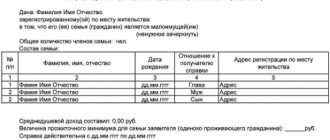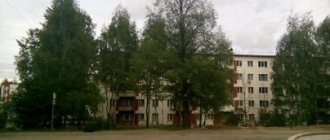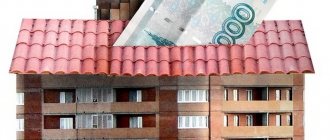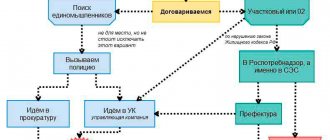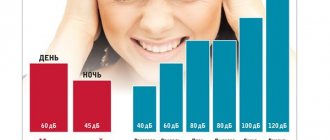What is it - maintenance and repair of housing in an HOA?
According to Art. 148 of the Housing Code of the Russian Federation, the management of the HOA, among other things, must monitor the maintenance of the common property.
To carry out its tasks, the board has the right to hire personnel or enter into contractual relations with individuals and legal entities.
Maintenance and repair of housing in an HOA means compliance with the requirements for the condition of the common property of residents and regulated by Decree of the Government of the Russian Federation of August 13, 2006 No. 491, as well as the elimination of damage.
The regulatory act obliges the HOA to perform the following functions:
- take the necessary measures to ensure the sanitary and epidemiological well-being of residents;
- assess how reliable and safe the house and surrounding area are for the health and lives of people;
- organize free access to basements, attics, other common areas and local areas for all citizens, including people with disabilities;
- maintain sewerage, water supply, electricity, ventilation systems, and general house metering devices in working condition;
- carry out energy saving measures;
- ensure proper appearance of the façade and common areas.
Important! The scope of maintenance and repair of housing, for which the HOA is responsible, includes structural parts, engineering communications, land, premises regulated by Art. 36 Housing Code of the Russian Federation.
How to carry out current or major repairs in a house, how the decision is made, who does it, is described in detail in this article, and find out about major repairs and the HOA here.
Blog
Having conducted more than 800 seminars for management companies and homeowners associations, I can safely say that discussing management fees and everything connected with it always turns into a heated argument. The main battles arise around issues related to accounting and tax accounting of management fees, the need to activate this service with property owners, the structure of this fee, etc. Since the questions are constant, I decided to write a series of articles in which I will try to “chew” to the public the features of this line in the receipt.
Let's start from afar.
No matter what anyone says, the management organization “enters the apartment building” not to satisfy the needs of residents (there is the state and people of the opposite sex for this), but to make a profit. Profit, in turn, is the worst irritant for a huge number of property owners, since they truly believe that servicing their apartment buildings costs a penny, and inflation does not apply to the costs of management companies
.
The state, in paragraph 2 of Article 162 of the Housing Code of the Russian Federation, directly indicated that the management organization (hereinafter referred to as MA), under the management agreement, “ obliges to perform work and (or) provide services for the management of an apartment building
, provide services and carry out work for the proper maintenance and repair of common property in such a house, provide utilities to the owners of premises in such a house and persons using the premises in this house...
”
Pay attention to the text above and you will see that it separates
from services for the maintenance and repair of common property, as well as from utilities, so let’s immediately determine that the fee for the management of apartment buildings is a fee for a separate type of activity of the management company, although it can be included in the fee for the maintenance of residential premises in accordance with paragraphs. 2 clause 1 of article 154 of the Housing Code of the Russian Federation.
In practice, the management fee could be:
- highlighted as a separate line in the payment document;
- in the payment document is included in the line “fee for the maintenance of residential premises”, but allocated
separately in the list of works and services;
- in the payment document is included in the line “fee for the maintenance of residential premises”, but NOT highlighted
separately in the list of works and services.
The first and second options mentioned above are safe from the point of view of the consequences of a “war” for the money of the UO, but the third option is fraught with very bad consequences
.
The problem is that although it is not directly written in the regulations, the courts make it clear that there is money that belongs to
to the owners of the premises, and there is money that, after payment,
no longer belongs
.
Thus, the Supreme Court of the Russian Federation in the Ruling of the Supreme Court of the Russian Federation dated June 25, 2018 N 304-ES18-7866 in case N A46-15897/2016 ( in fact, there are already hundreds of such rulings
) indicated that contributions from owners in the form of fees for the maintenance of residential premises “
have a target character and do not become the property of the Company
.”
What does all this mean in practice?
This means that if the UO does not separate the flies from the cutlets, or rather, its money from “their” money, then it may turn out that it simply will not have its own money
.
From decision to decision, judges say that if the management company has not completed the work, then the funds remain
on the personal account of the apartment building, and if we assume the apartment building has “gone away,” then the “undeveloped” funds
should be returned
to the owners of the premises as unjust enrichment.
From the point of view of our rather “smoky” legislation regulating the scope of management of apartment buildings, debiting funds from the personal account of apartment buildings is possible only after signing a certificate of completion of work
between the representative of the owners of premises in the apartment building and the management organization (clause 4.11 of GOST R 56192-2014. “National standard of the Russian Federation. Housing and communal services and management of apartment buildings. Services for maintaining the common property of apartment buildings. General requirements”).
And then 2 problems come around the corner:
- in MKD no one
sign certificates of completed work, because there are few real violent ones and no one dared to become chairman of the house council;
- How can you even get management work done???
The first problem
can be circumvented through a management agreement or a general meeting of owners (
if interested, write in the comments and I’ll write a detailed FAQ
), and
the second problem
is actually often unsolvable.
There is a “wonderful” document called the Rules for the provision of services and performance of work necessary to ensure the proper maintenance of common property in an apartment building, approved by Decree of the Government of the Russian Federation of April 3, 2013 No. 290 (hereinafter referred to as Rules No. 290). So, paragraph 9 of Rules No. 290 states that “ information on the provision of services and performance of work provided for in the list of services and work
, are reflected in acts drawn up in
the form
established by the federal executive body, which carries out the functions of developing state policy and legal regulation in the field of construction, architecture, urban planning and housing and communal services, and are an integral part of the technical documentation of an apartment building
.
If you “fail” at the link in this paragraph, then you will see the form of the act itself, which is approved by Order of the Ministry of Construction of Russia dated October 26, 2015 No. 761/pr “On approval of the form of the act of acceptance of services provided and (or) work performed on the maintenance and routine repair of general property
in an apartment building."
Please note that neither the title of the document nor the form itself refers to the activation of management services
?
And this is absolutely true, because:
- Housing complex of the Russian Federation divides
services for the maintenance and repair of common property from management services (clause 2 of article 162 of the Housing Code of the Russian Federation);
- it is impossible to activate services with each house
on filling out the GIS housing and communal services, lawyers going to court, thoughts of the chief accountant and economist on the issue of reflecting certain data in the report on the execution of the management agreement and other work, which, in accordance with the Rules for the implementation of activities for the management of apartment buildings, approved by Decree of the Government of the Russian Federation of May 15, 2013 No. 416 (hereinafter referred to as Rules No. 416) relate to management services.
- detailing of management work in the list of works and services is simply impossible
, since it is impossible to plan and subsequently justify something
that is not of a material nature
.
You read this article during working hours and the owners pay you for it. If they are all sitting next to each other and activating this process, say hello to them from me
. Many will argue that we detail everything as it should be... Then I personally have a question - HOW do you do this?
Now let’s return to what was a little higher in the text and analyze the situation when the management fee is not allocated in the list of works and is included in the fee for the maintenance of residential premises
.
Answer me a few questions (write in the comments):
- How will you separate your money (for your dear management) from “their” money for maintenance and repairs?
- How will you activate maintenance and repair services within the management work?
- Well, first of all, how will you apply the benefit under paragraph 30, paragraph 3, Article 149 of the Tax Code of the Russian Federation in terms of exemption from VAT?
If the continuation is interesting, I will write a second part.
Sincerely, your comrade Stalin)))
Does the partnership have the right to collect contributions for the maintenance of houses?
HOA, guided by Art. 137 of the Housing Code of the Russian Federation, has the right to enter into contractual relations with apartment owners to carry out the functions of managing the house and carrying out activities aimed at decent maintenance and repair of common property and the surrounding area.
Citizens are obliged to pay for the services provided in accordance with contractual obligations, in the specified amount and within the agreed time frame. The board of the partnership, based on Art. 148 of the Housing Code of the Russian Federation, monitors the timeliness of payment for work done.
Payment for mandatory services required to maintain a home, fees and other expenses in the HOA is written in detail in a separate material.
How is the tariff determined?
The amount of payments is calculated taking into account the financial information provided by the HOA board to the general meeting of homeowners.
Such data includes:
- financial reports;
- estimates of income and expenses necessary for the maintenance of common property;
- information about the list and scope of work required to maintain housing in normal technical condition.
When analyzing services and setting tariffs, specialists take into account objective factors:
- structural type of building;
- technical characteristics of common areas;
- how worn out the house and communications are;
- climatic characteristics of the area.
Taking into account the qualitative assessment of common property, the costs of maintaining the HOA and current repairs of housing are calculated. The tariffs are set by the general meeting of tenant-owners.
Any citizen with an active life position has the right to take part in such a meeting and make proposals and adjustments for discussion.
Members of the HOA have the right to freely familiarize themselves with settlement documentation, tariffs, amounts of payments and contributions. The board of the partnership is obliged to cover financial issues in accessible places: bulletin boards, Internet resources.
What work is included in the price?
According to the law (Resolution No. 491 of August 13, 2006, paragraph 28), owners of common areas must spend their personal funds on their maintenance. The fee for this type of service includes the cost of performing several types of work.
Among them:
- inspection of the building, playgrounds, green areas for safety from various types of injuries, fire, stability of structures, trees in adverse weather conditions: strong wind, rain, snowfall;
- cleaning stairs, landings, local areas;
- supervision of the uninterrupted operation of utility networks;
- Carrying out, if necessary, sanitary and hygienic measures (fighting rats, bats) on the territory of common property;
- ensuring illumination of the local area, entrances, basements;
- maintaining the required temperature and air humidity in general purpose premises;
- sealing of residential electricity meters when replacing with a new device;
- painting yard equipment, borders, walls and other structures that have lost their proper appearance;
- landscaping;
- planting flowers, if such a service is provided for by the general meeting of the HOA;
- loading accumulated waste into containers.
In some regions, the removal of solid and liquid household waste is not included in the housing maintenance service of the HOA. It is taken into account as a separate expense item, which also provides for the disposal of solid waste and liquid waste.
The HOA enters into a service agreement with the relevant organization.
Can the owner not pay?
The owner of the premises, refusing to pay for the work of the HOA for the maintenance and repair of housing, violates the legislation of the Russian Federation. So, according to Art. 36 of the Housing Code of the Russian Federation, the state gives citizens the right to own part of the common property.
As stated in Art. 37 Housing Code of the Russian Federation, the size of such ownership directly depends on the area of the apartment. Art. 39 part 1 of the Housing Code of the Russian Federation obliges the owner to take care of the property that belongs to everyone on the basis of shared ownership.
A citizen must maintain everything he owns in decent shape and working condition and spend money on it.
At the meeting of the partnership, with the consent of the representatives of the owners, the tariffs at which the HOA undertakes to carry out the work are approved. A complex system - an apartment building - functions smoothly thanks to the coordinated actions of many specialists.
By refusing to pay for the maintenance and repair of housing, a person does not want to reward the work of craftsmen, janitors, plumbers, carpenters, painters, who provide him with comfort and convenience.
Important! Poor performance of duties by workers is not a reason to refuse due payment.
If the HOA board has an unscrupulous attitude towards its responsibilities, it makes sense to contact Rospotrebnadzor, the Housing Inspectorate or the court (in which cases problems with the HOA need to be resolved through the court, find out here, and how to file a claim in court if the partnership does not fulfill its duties, you can read in a separate article).
Penalties may be imposed on negligent workers, and by a court decision it will be possible to obtain compensation for wasted funds (the liability of the HOA, the types of fines and penalties for violations of authority are described in detail in another material).
Who sets the tariff and how?
Tariffs for the maintenance and repair of houses serviced by management companies are determined in the following order:
- Management company employees develop a base tariff taking into account expenses over the past period and the design features of buildings.
- The owners of the premises at the general meeting approve the proposed tariff.
- Management company employees send an application to the regional housing department for approval of the tariff.
- The housing department reviews the approved tariff, adjusts it if necessary and approves it.
If the tariff is adjusted upward, authorities are required to justify the changes in writing. The tariff is established for a period of at least one year.
It is important to take into account that in cities of federal significance (Moscow, St. Petersburg and Sevastopol), tariffs are approved not by regional authorities, but by local municipalities.
If the house is managed with the help of an HOA, then proposals for tariffs are prepared by board members, and approval occurs at a meeting of HOA members. When the building is directly managed by apartment owners, tariffs are determined by the terms of contracts with resource suppliers and service providers.
After the tariffs are approved at the meeting, representatives of the HOA or management company must send the following package of documents to the administration:
- proposed tariff schedule;
- written justification;
- passport of an apartment building;
- constituent documents of the management organization;
- an extract from the minutes of the residents’ meeting at which the tariffs were approved.
An extract from the minutes must contain information about the number of square meters of the house, the number of meters owned by those present at the meeting, and the number of votes cast for the approval of tariffs.
Consequences of debt
If you do not pay for maintenance and repairs of your home for several months, the HOA may file a claim in court for damages.
If a decision is made in favor of the partnership, the debt will be collected. After the trial, the writ of execution is sent to the bailiff service.
If the defendant stubbornly refuses to pay the debt, the accounting department at the place of work will receive a document obliging them to withhold 50% of the money from the debtor’s salary (Article 99 of the Federal Law “On Enforcement Proceedings”).
If you have a bank card, bailiffs can withdraw all the money on it up to the amount of debt. The way out is to provide evidence that wages were transferred to the card. Then the retention will not exceed 50%.
Services must be paid in full and on time. In difficult life situations, you should turn to the state for support and receive a subsidy for housing and communal services.
In other situations, for example, when planning a long-term departure, it is possible to make an advance payment. If you are away for a long time, it is recommended to use any payment system, in particular Sberbank Online.
